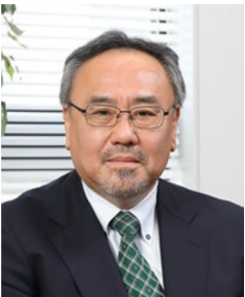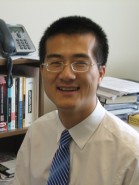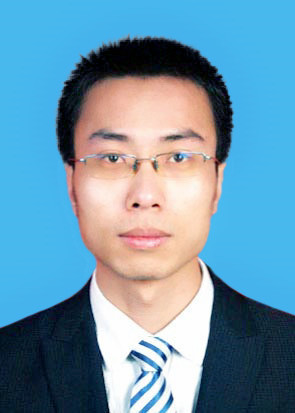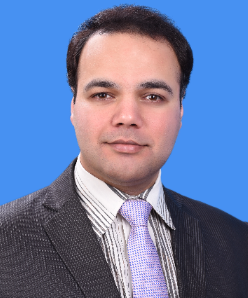| Prof. Ichiro NaruseNagoya University,Director, Institute of Future Materials and Systems, Nagoya University President, Japan Society of Energy and Resources KIchiro Naruse, Director and Professor of the Institute of Future Materials and Systems at Nagoya University (equivalent to a "National Key Laboratory" in China), and President of the Japan Society of Energy and Resources, obtained his Doctor of Engineering degree from the Department of Chemical Engineering at Nagoya University in 1989. In the same year, he joined the Department of Energy Engineering at Toyohashi University of Technology as a Research Assistant. In 1994, he was promoted to Associate Professor in the Department of Ecological Engineering. From 1997 to 1998, he worked as a Visiting Researcher in the Department of Chemical and Environmental Engineering at the University of Arizona, USA. In 2006, he was appointed as a professor at the Center for International Cooperative Engineering Education at Toyohashi University of Technology. In 2007, he became a professor in the Department of Mechanical Systems Engineering at Nagoya University, and in 2012, he became a professor at the EcoTopia Science Institute at Nagoya University. In 2015, he was appointed as a professor at the Institute of Future Materials and Systems at Nagoya University, and since 2020, he has served as the director of the institute. His research areas include energy and environmental engineering, coal utilization, biomass and waste management, and energy conversion engineering. Title:Control of ash deposition in pulverized coal combustion boilers Abstract:Some of the ashconstituentsgenerated from mineral impurities in pulverized coaladhere to the surfaceofheat exchanger tubes. Tocontrol theashdepositionontheheat exchanger tubes, surface treatmentonthe tube surface, using a thermal spraying technique,wasproposed in this study. First, the relationship betweenamount of the ash deposition and an adhesion force were evaluated, using a vertical ash deposition furnace and atensile testing machinefor long period. Second, the control mechanism of ash deposition was elucidated, analyzing the interface between the ash deposition layer and the alloy samples by a SEM-EDS. Finally, the field tests were also performed in some practical coalfired boilers to evaluate the effects of the technique. As results, the thermal spraying material of Ni alloy, which had beendeveloped in this study, could reduce both the ash deposition mass and adhesion force. The results of field tests showed that the technique could reduce the ash deposition. |
| Prof. Qinmin YangZhejiang University Qinmin Yang, Professor at Zhejiang University, has been recognized as a Changjiang Scholar by the Ministry of Education. His research primarily focuses on industrial data intelligence, renewable energy and energy internet, and intelligent control system theory. In the past five years, he has led over 10 national-level projects/topics, including jointly funded major projects from the National Natural Science Foundation of China, National 863 Program projects from the Ministry of Science and Technology, intelligent manufacturing projects from the Ministry of Industry and Information Technology, and several large-scale collaborative projects. He has published over 100 academic papers and authored 3 chapters in English books. He has been listed in the annual scientific influence rankings by Stanford University and Elsevier, recognizing him as one of the top 2% of scientists globally. He has also received honors such as the Qianjiang Talent Award from Zhejiang Province and being one of the first outstanding young scholars by Zhejiang University. Title:Theoretical research and practice in intelligent control design for wind energy Abstract:Wind energy has been considered to be a promising alternative to current fossil-based energies. Large-scale wind turbines have been widely deployed to substantiate the renewable energy strategy of various countries. In this talk, challenges faced by control community for high reliable and efficient exploitation of wind energy are discussed. Advanced controllers are designed to (partially) overcome problems, such as uncertainty, intermittence, and intense dynamics.Theoretical results and attempts for practice are both present. |
| Prof. Jie ZhangSouthWest Petroleum University Jie Zhang, Ph.D. and Professor, is a reserve candidate for the leading academic and technological talent in Sichuan Province. He has been repeatedly recognized in the global top 2% scientists list, selected for the Youth Talent Program by the China Association for Science and Technology, awarded as an Excellent Young Energy Scientist by the China Energy Research Society, and received the Youth Science and Technology Award from the Society of Public Safety Science and Technology, among other honors. He currently serves as the Assistant Dean of the School of Mechanical and Electrical Engineering at Southwest Petroleum University and the Secretary of the Key Laboratory of Petroleum and Natural Gas Equipment under the Ministry of Education. He has led over 10 national and provincial-level projects, authored 4 monographs, and participated in the formulation of 2 national and industry standards. He has published a total of 120 papers, with 50 indexed by SCI as the first author and 23 indexed by EI. He holds 25 authorized invention patents and has registered 2 software copyrights. He has received several awards, including two Second Prizes and one Third Prize for Scientific Progress in Sichuan Province, a Second Prize for Teaching Achievements in Sichuan Province, and two Second Prizes for Scientific Progress from the China National Petroleum and Chemical Industry Federation. He has guided students to win 45 awards in various subject competitions. Title: Key Technologies for Efficient Heat Extraction and Utilization of Geothermal Energy Abstract:In response to the current challenges of high development costs and low utilization efficiency in geothermal energy, the "same layer extraction and irrigation" and "heat extraction without water extraction" heat extraction technologies for mid to deep geothermal energy were conducted. A new heat extraction scheme for extraction and irrigation wells has been designed, and the heat extraction characteristics of coaxial casing and U-shaped wells have been compared. The design scheme of buried pipes for shallow geothermal energy was optimized, and their annual heat transfer characteristics were analyzed. For the heating and cooling needs of buildings, clean thermal energy multi energy complementary technology such as solar energy, geothermal energy and industrial waste heat was conducted. The thermodynamic characteristics of the system throughout the year are analyzed, and optimization methods for multi energy complementary system characteristics are proposed. |
| Assoc. Prof. Muhammad JunaidChina University of Mining and Technology Muhammad Junaid received his Ph.D. (2020), M.S. (2015), and B.Eng. (2011) in Electrical Engineering with specialization in Power system engineering. Since late 2020, he has been serving as an Associate Professor at the School of Electrical Engineering, China University of Mining and Technology, Xuzhou, China. Previously, he was a Research Fellow at King's College Aberdeen, University of Aberdeen, in Scotland, and a Lecturer in Power Engineering at the Department of Electrical Engineering, SARHAD University of Science & Information Technology, in Pakistan. Dr. Junaid's research focuses on alternatives to the SF6 gas and key technologies for fault current interruption, including vacuum interrupters, cryogenic dielectrics, and high voltage insulation. He is a Senior Member of IEEE, a member of the Chinese Society of Electrical Engineering (CSEE), the European Society for Applied Superconductivity (ESAS), and IAENG Hong Kong, and a life member of the Pakistan Engineering Council (PEC). He has been involved in 10 funded projects, presiding over 8 of them, and holds 10 patents and 54 publications. Title:Research and development on the novel subway traction DC circuit breaker |




